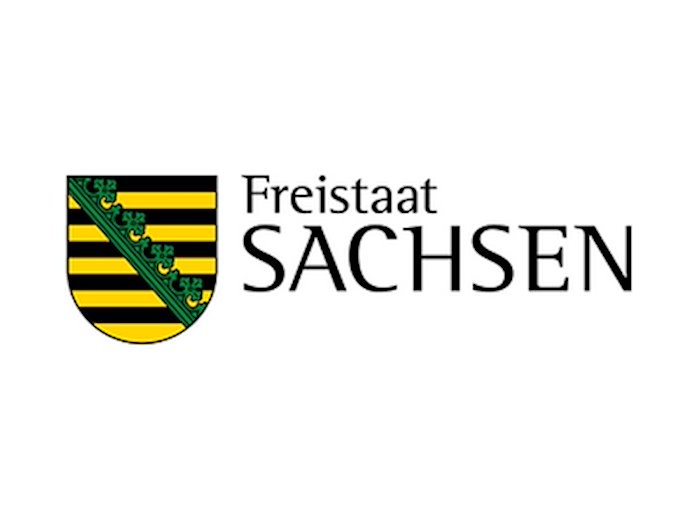
They are now invited to submit so-called full proposals, i.e. fully developed concepts for the research projects. TU Dresden can also prepare three possible follow-up applications for Clusters of Excellence that are already being funded.
The concepts behind the cluster applications will be evaluated by a high-ranking scientific committee at the end of 2024/beginning of 2025. A decision will then be made on which Clusters of Excellence will be funded over the seven-year funding period from 2026 to 2032.
Science Minister Sebastian Gemkow said after the DFG’s decision:
“It is an exceptionally great success that two of our universities have now reached the final round in the competition for Clusters of Excellence. Measured against the overall selection by the German Research Foundation, Saxony has an above-average representation in the final round. This is a great day for Saxon science and shows that excellent researchers have their home in Saxony. But it also shows that the support of the Free State of Saxony for our universities and scientific institutions is correct and, above all, justified. Congratulations to all the winners!”
The research cluster projects that have now been selected for the final round of the Excellence Competition include:
Leipzig University
- Leipzig Center for Metabolism (LeiCeM) – Understanding and Improving Metabolic Health
The project is dedicated to understanding and improving diseases that arise from metabolic disorders and lead to serious health problems such as diabetes mellitus, fatty liver and cardiovascular diseases. LeiCeM focuses on personalized therapeutic approaches and individual metabolic variations rather than general risk factors. Particular attention is paid to early childhood development and genetic influences on lifelong health risks. LeiCeM is headed by Prof. Dr. Michael Stumvoll from the Faculty of Medicine. In addition to the University Hospital, a total of five renowned Max Planck, Helmholtz and Fraunhofer Institutes and the Leipzig Heart Centre are involved.
- Breathing Nature – Interactions between biodiversity, climate and human behavior
In the Cluster of Excellence project “Breathing Nature”, researchers from the life sciences, economics and earth system sciences are investigating the interactions between biodiversity loss and climate change, two of the greatest current challenges worldwide. The focus is also on human behavior in these environmental crises and the question of social solutions. “Breathing Nature” is headed by Prof. Dr. Johannes Quaas, Faculty of Physics and Earth System Sciences at Leipzig University. A total of five renowned research institutes, including Leibniz, Max Planck and Helmholtz institutes, are involved.
TU Dresden
- REC2: Responsible electronics in the age of climate change
Electronics offer numerous benefits for our lives, but at the cost of enormous resource and energy consumption and the generation of electronic waste. The REC² cluster creates the scientific basis for the electronics of the future: new material platforms, component concepts and integrated systems that can be used to realize responsible electronics in an ecologically, economically and socially sustainable way.
Cluster spokesperson: Prof. Dr. Yana Vaynzof
- BiC: Behavior in Context: Computation of behavior by brain and machine in complex and uncertain environments
The human brain controls behavior in complex situations such as communication or road traffic. Despite years of research, AI systems cannot act just as efficiently. The Cluster of Excellence BiC wants to investigate whether recently discovered brain mechanisms represent crucial key principles and are transferable to machine learning and the development of therapies.
Cluster spokesperson: Prof. Dr. Stefan Kiebel
- CARE: Climate-neutral and resource-efficient construction
Conventional concrete and cement account for 80% of the materials used in construction and are responsible for more than 8% of global CO2 emissions during production. The Cluster of Excellence CARE at TU Dresden and RWTH Aachen University aims to use climate-friendly building materials, construction principles and production technologies to show ways towards sustainable construction in every respect.
Cluster spokesperson: Prof. Dr. Viktor Mechtcherine
In addition to the new applications, TU Dresden’s existing Clusters of Excellence from the current Excellence funding period must also be confirmed so that they can further develop and consolidate their projects in a second funding phase. These include:
1. ct.qmat – Complexity and Topology in Quantum Matter
2. Ce.TI – Center for Tactile Internet with Human-in-the-Loop
3. Physics of Life – The Dynamic Organization of Living Matter
Background to the Excellence Strategy of the Federal and State Governments:
In 2016, an agreement was reached between the federal and state governments to support top-level research at German universities on a permanent basis with a new funding programme. The main objective is to sustainably strengthen Germany as a location for science in international competition and make it more visible internationally. The funding is aimed at facilitating top scientific achievements, sharpening the profiles of universities and encouraging even stronger networking and cooperation within the scientific system. The Excellence Strategy thus combines the promotion of top-level research with long-term and strategic investments in the higher education system.
The Excellence Strategy comprises two funding lines… the “Clusters of Excellence” and the “Universities of Excellence”.
The Clusters of Excellence and Universities of Excellence are selected on the basis of science-led selection procedures. These procedures are carried out by the German Research Foundation (DFG) and the German Council of Science and Humanities on behalf of the federal and state governments.
The final decision on which clusters will be funded from January 1, 2026 will be made by the Excellence Commission in May 2025. It consists of the scientists on the expert panel and the federal and state ministers and senators responsible for science. In particular, funding of 539 million euros per year will be made available for up to 70 Clusters of Excellence throughout Germany from the second funding period onwards in order to strengthen the competitive area. From 2026, a total of 687 million euros per year will therefore be available in the Excellence Strategy. 75% of the funds will be provided by the federal government and 25% by the respective host state of the Cluster of Excellence or University of Excellence.
In November 2025, universities that have acquired at least two clusters of excellence can apply for the University of Excellence funding line. A decision on the award of this funding as a University of Excellence will be made in 2026. Around 148 million euros are available annually for up to fifteen Universities of Excellence or Excellence Alliances, with additional funds being made available for the funding of up to four new additional Universities of Excellence. In Saxony, TU Dresden is currently being funded as a University of Excellence.
The TU Dresden was already successful in the previous joint Excellence Initiative of the federal and state governments and was awarded the title of University of Excellence in 2012. Since 2019, the TU Dresden has been permanently funded as a University of Excellence in the current, indefinite agreement on the Excellence Strategy of the federal and state governments. As a University of Excellence, TU Dresden will be evaluated by an independent and external panel of experts in the coming year 2025.
– – – – – –
Further links
👉 www.sachsen.de
Photo: TUD/Michael Kretzschmar




